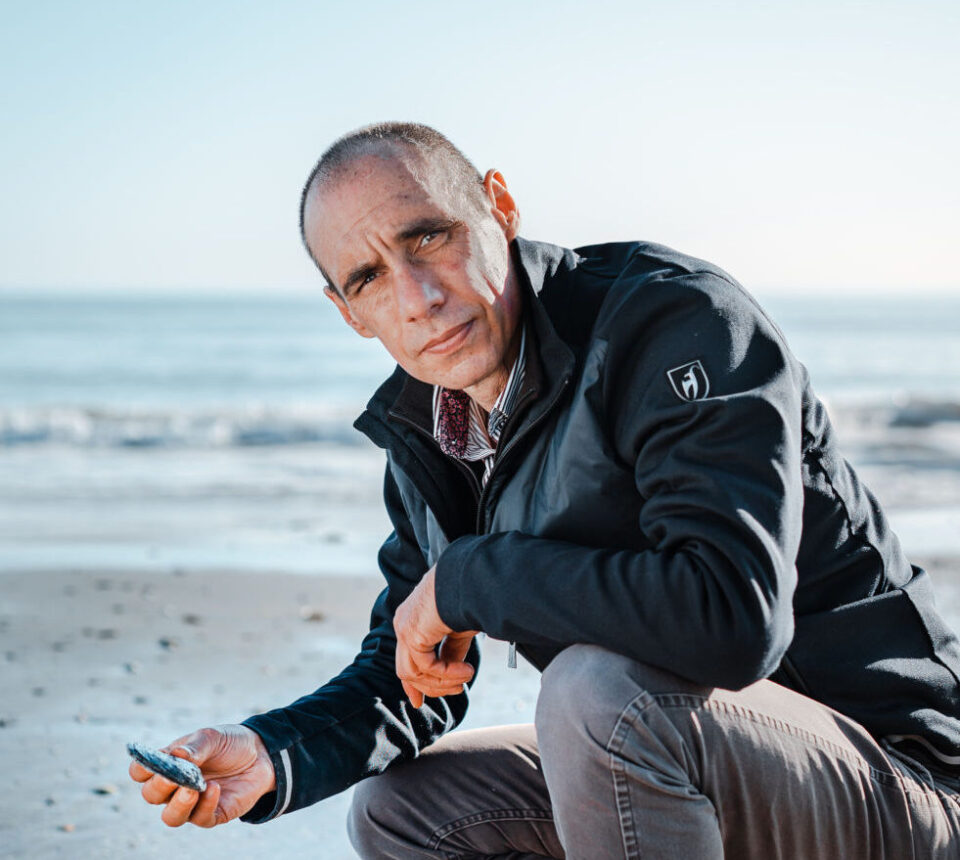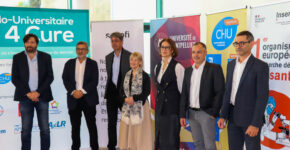David Mouillot: Fish and Men
After studying the impact of human activities on marine biodiversity, David Mouillot is now looking at the potential impact of coastal marine resources on reducing human poverty. The professor at the University of Montpellier and researcher at the Marbec laboratory has just been awarded an ERC Advanced Grant to conduct transdisciplinary research on this new topic.

It's difficult to get him to talk about himself. David Mouillot prefers to gloss over his career and get straight to his new project: assessing the role of coastal marine resources in the development of rural areas in East Africa. These areas have been affected by land aridification for the past 30 years as a result of climate change. This is an important research project for which he has just been awarded a €2.5 million ERC Advanced grant over five years. "My hypothesis is that coastal villages that have turned to the sea and protected their marine resources are doing better in terms of economic and human development than their counterparts that have kept agriculture and livestock as their main resources," explains the researcher at the Marbec laboratory. This question extends his work on the combined effects of climate change and socio-economic factors on marine ecosystems.
The first step in this research is to identify the villages to be surveyed in the three countries under consideration: Madagascar, Tanzania, and Mozambique. To track the socioeconomic trajectories of coastal villages, the researcher has opted for observation from the sky. In other words, analysis of satellite images taken between 1990 and 2024. "This allows us to go back in time and track the development of infrastructure, light intensity, and land use, which are signs of the economic development of villages. The idea is to identify 'bright spots' and 'dark spots,' in other words, villages that have successful development trajectories and those caught in a spiral of poverty."
Nature-based solutions
This large-scale spatial approach will be carried out with the help of artificial intelligence applied to satellite imagery. Then, once the villages have been identified, "there is an important phase of field surveys to verify our hypothesis and understand the drivers of success. " All of this work is made possible by the ERC's material and human resources: five engineers specializing in AI applied to satellite imagery and a postdoctoral researcher for the socio-economic analysis of the selected villages. The socio-ecology modeler is delighted with this interdisciplinary team.
David Mouillot, who holds a PhD in biomathematics, admits that he was not predestined for marine ecology or socio-ecology. But much has happened in his career since then. Appointed lecturer in Montpellier in 2001, "the day the twin towers fell," he recalls, he has never left the Montpellier marine ecology laboratory since. "I started by modeling the impact of fishing on fish stocks and biodiversity. Our results were expected and trivial: the more fish were caught, the fewer fish there were," he recalls critically.
Then, in 2006, the shift in focus toward environmental issues in response to the impacts of climate change galvanized him. "The 2003 heatwave in France and the excessive mortality it caused marked the beginning of a strong awareness, the beginning of an environmental movement rooted in climate issues."
In 2010, thanks to a European Marie Curie grant, David Mouillot went to James Cook University in Australia to work in a socio-ecology laboratory quantifying the impact of socio-ecological changes on coral systems. "This team was a pioneer in the nature-based solutions approach, which has since become widespread. The idea that protecting nature serves human well-being was a turning point for me."
The blue economy
And when he considers the promises of the blue economy, the hypothesis that sustainable exploitation of marine resources can drive economic development inspires his ERC project. His ambition is to "better predict the link between ecosystem health and poverty in rural coastal communities."
Returning to his career, among the distinctions mentioned by David Mouillot, it is worth noting that he was a junior then senior member of the Institut universitaire de France (IUF) between 2009 and 2024, won the CNRS bronze medal in 2011, and has been one of the world's most cited researchers in ecology and the environment since 2016.
It is also impossible not to mention the new environmental DNA tools he has developed to study marine ecosystems. Arriving with the automation of sequencing, the technique is based on the analysis of DNA filtered from water. Proven in freshwater, this technique has been applied to the marine environment by his team since 2016. With the creation of a joint laboratory between Marbec and the company SpyGen, he has established a reference database for the Mediterranean, which now includes nearly 80% of the barcodes for the 600 species of fish listed.
For his ERC grant, David Mouillot wants to use environmental DNA to assess marine biodiversity off the coast of the villages studied, "to see if there is a link between the level of development of the villages and the coastal biodiversity nearby, in the hope of finding a reason for optimism." " And the humanist ecologist dreams that reasonable fishing practices could lead to a virtuous circle.
